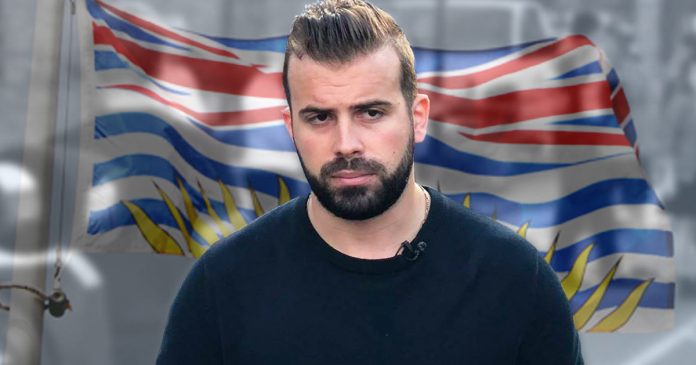Blindsided.
That’s the only way to describe how most of our campaign staff and volunteers felt on Friday, October 22nd, upon hearing the news that my candidacy had been rejected less than two weeks after entering the BC Liberal leadership race.
For those from outside BC, the BC Liberals are the main centre-right, free-market alternative to the NDP in the province – comprised of both federal Conservative and federal Liberals (not unlike the Sask Party in Saskatchewan).
After being resoundingly defeated by the NDP one year ago, and following the resignation of then-leader Andrew Wilkinson, the BC Liberals launched a leadership race and embarked on a quest of “renewal.” I entered the race, with the support of my 100,000+ social media followers, just over two weeks ago.
And within those first two weeks, there was little doubt that momentum was on our side.
Over 2,000 British Columbians registered to vote for our campaign while our first two events, in Victoria and Comox, saw higher turnouts than events hosted by the other candidates. We were also the first to roll out a detailed platform and take strong positions, including opposing B.C.’s carbon tax and strongly defending freedom of speech. These are issues that the other leadership candidates have yet to touch.
It was all going according to plan – until it wasn’t.
It was at this point we received the shocking news that an unelected, seven-person committee within the BC Liberal Party (known as the Leadership Election Organizing Committee or LEOC) had rejected my candidacy and, in effect, ended our campaign. LEOC defended the decision, in a public statement, by arguing approval of my candidacy “would be inconsistent with the BC Liberal Party’s commitment to reconciliation, diversity and acceptance of all British Columbians.”
Setting aside the fundamental point that subjective decisions on the worthiness of leadership candidates should be left to party members, this decision begged the question on which evidence did they base their judgment?
The party pointed to three tweets I had made over the past two years that argued the Government of Canada had not committed “genocide” against Indigenous people, and a fourth tweet that stated a historical fact about the origins of residential schools.

At worst, it could be argued that one of the tweets was more terse than necessary. But it is difficult to see how any of these tweets expressed extreme or factually dubious opinions that fall outside mainstream Canadian political thought. Especially considering “genocide” is most commonly defined as “the deliberate killing of a large number of people from a particular nation or ethnic group with the aim of destroying that nation or group” – a rather serious accusation which, I believe, should only be used in those rare, extreme circumstances (such as the Holocaust, for example).
It also raises the important sociological questions of whether the new litmus test for running for office in Canada includes some sort of compelled acknowledgement that Canada is a genocidal state, and if a pre-requisite for reconciliation, which I wholeheartedly support, rests on such an acknowledgement as well?
Another question that might be asked is if First Nations, who are finally beginning to share in the economic and societal benefits of Canada, are being served by such decisions? Ironically, of the unelected, seven-person committee that denied my candidacy none, to my knowledge, are actually Indigenous. Meanwhile, the one Indigenous candidate in the leadership race, Ellis Ross, enthusiastically supported my entry.
At 31-years-old, I fully recognized the magnitude of my undertaking when I entered the leadership race, and while I believed we could win, that was not my primary motivation for running.
I believe, as a society and culture, we have become, to an unhealthy degree, terrified of open and honest debate. We are scared of discussing ideas and issues, our history and traditions, and being OK with agreeing to disagree (rather than trying to cancel anyone who holds a contrarian opinion).
While the party has, to this point, been tight-lipped about the social media posts they used as justification (sincerely or not) to block my candidacy, I felt it was important to have them out in the open. This way we can, hopefully, discuss and debate not only their merits but the appropriateness of their use by the BC Liberal Party to justify exchanging the democratic rights of their members with the judgement of an unelected seven-person committee in the middle of a leadership race.
